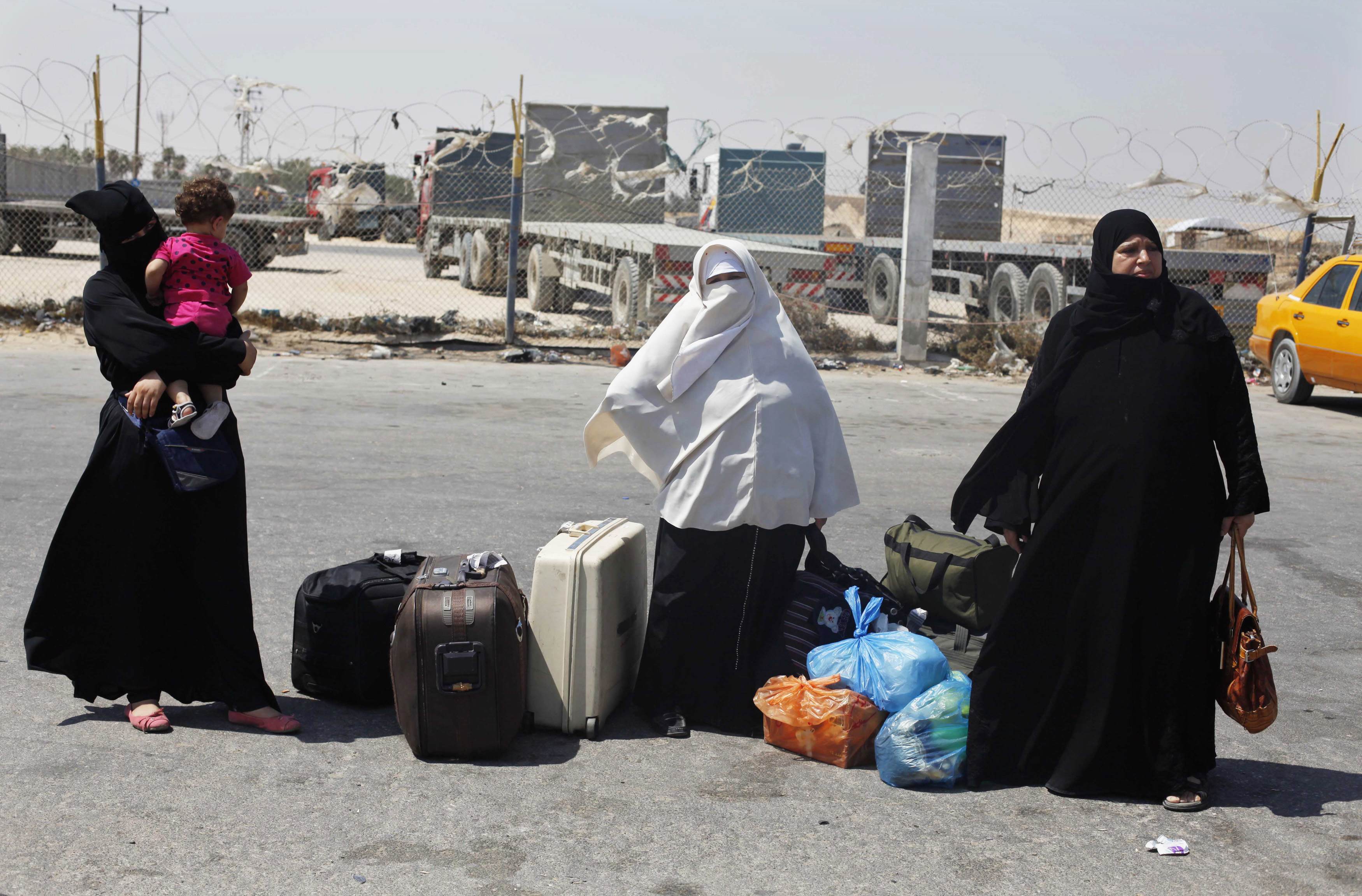Latest NEWS
- Aswat Masriya, the last word
- Roundup of Egypt's press headlines on March 15, 2017
- Roundup of Egypt's press headlines on March 14, 2017
- Former Egyptian President Hosni Mubarak to be released: lawyer
- Roundup of Egypt's press headlines on March 13, 2017
- Egypt's capital set to grow by half a million in 2017
- Egypt's wheat reserves to double with start of harvest -supply min
- Roundup of Egypt's press headlines on March 12, 2017
Gaza Palestinians feel pain of new Egypt border restrictions

By Nidal al-Mughrabi
GAZA, Sept 12 (Reuters) - Hooked up to a dialysis machine, Samir Abu Tahoun can only sit and wait for the gates to a new life to open.
For the 57-year-old Palestinian seeking a kidney transplant in Cairo, that means the border crossing from the Gaza Strip to Egypt, whose army-backed government has sharply limited entry from the Islamist Hamas-run territory since the military deposed Islamist president Mohamed Mursi two months ago.
"The crossing has become equal to life for me because if I do not travel, if I do not do the (surgery), I will live the rest of my life in suffering," said Abu Tahoun, a former metal worker.
Like Abu Tahoun, thousands of Palestinians in Gaza are waiting for the Rafah frontier terminal to resume normal operation. They include people seeking medical treatment unavailable in the enclave, students and stranded visitors.
Before Egypt's military ousted Mursi - who Hamas regarded as an ally - in July after mass protests against his rule, some 1,200 people a day used to cross at Rafah, Gaza's main window to the world. Now, Egypt allows in only 250 each day.
Egyptian officials have accused Hamas, a 1980s offshoot of Egypt's Muslim Brotherhood, of supporting anti-government protests and activities - allegations the Palestinian movement denies.
While the political dispute festers, Abu Tahoun receives dialysis treatment three times a week. He had hoped to be in Egypt by now, along with two of his sons so they could be tested as kidney donation candidates.
SINAI MILITANT ATTACK
Cairo closed the Rafah crossing completely on Wednesday after assailants crashed two explosive-laden cars into a security building adjacent to the border zone, killing six Egyptian soldiers. The lawless Sinai peninsula has seen frequent battles between the Egyptian military and Islamist gunmen.
Ashraf al-Qidra, spokesman for the Hamas-run Gaza Health Ministry, said 1,000 patients a month required medical care in Egypt and in other countries. Rafah's closure, he said, would also affect the import of medication and prevent foreign doctors from visiting Gaza.
"Up until June, we received 60 delegations of well-experienced doctors who performed surgery on 1,000 patients. No delegation has arrived since then," Qidra told Reuters.
For Abu Tahoun and many other patients in the Gaza Strip, treatment in Israel, which like Egypt has tight Gaza border restrictions, is not an option. Referrals from Gaza to Israeli hospitals are reserved mainly for critically ill patients.
In addition to the clampdown at Rafah, Egypt has been waging a campaign to destroy the network of smuggling tunnels that delivered weapons and goods to the Gaza Strip, which is partially blockaded by Israel.
The bulldozing of the tunnels has deepened Gaza residents' feelings of isolation in a tiny coastal territory that many have described as a prison. Egypt has suggested Palestinians have been using the underground passages to help Sinai militants, a charge Hamas rejects.
With the tunnels shut, prices of consumer items have skyrocketed in the enclave, and cheap Egyptian fuel is in short supply. Israeli fuel is available - at double the price of the Egyptian product.
Outside one Gaza gas station, taxi driver Samir Ali said he had been waiting in line for seven hours to tank up. "Rafah crossing and the tunnels - they have become all we care about, our lifelines," he said.
(Editing by Jeffrey Heller/Mark Heinrich)










